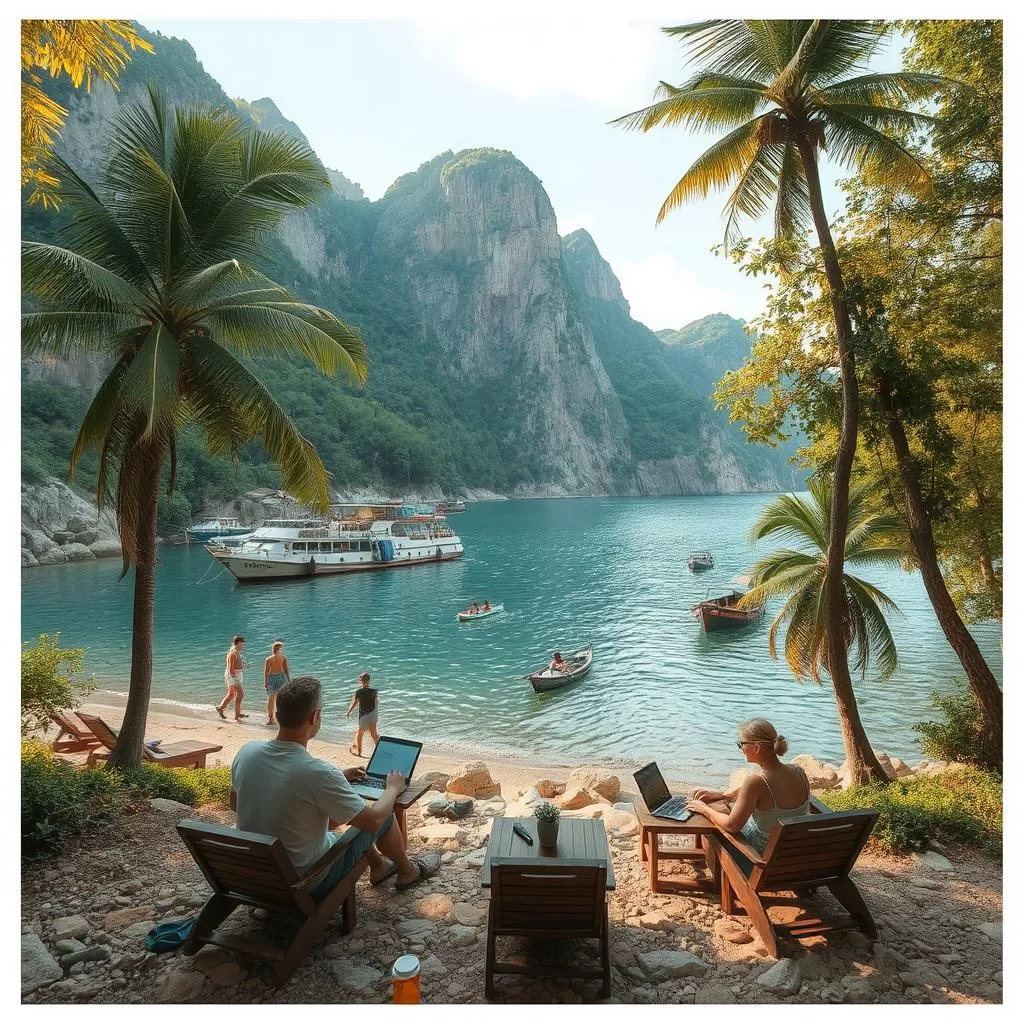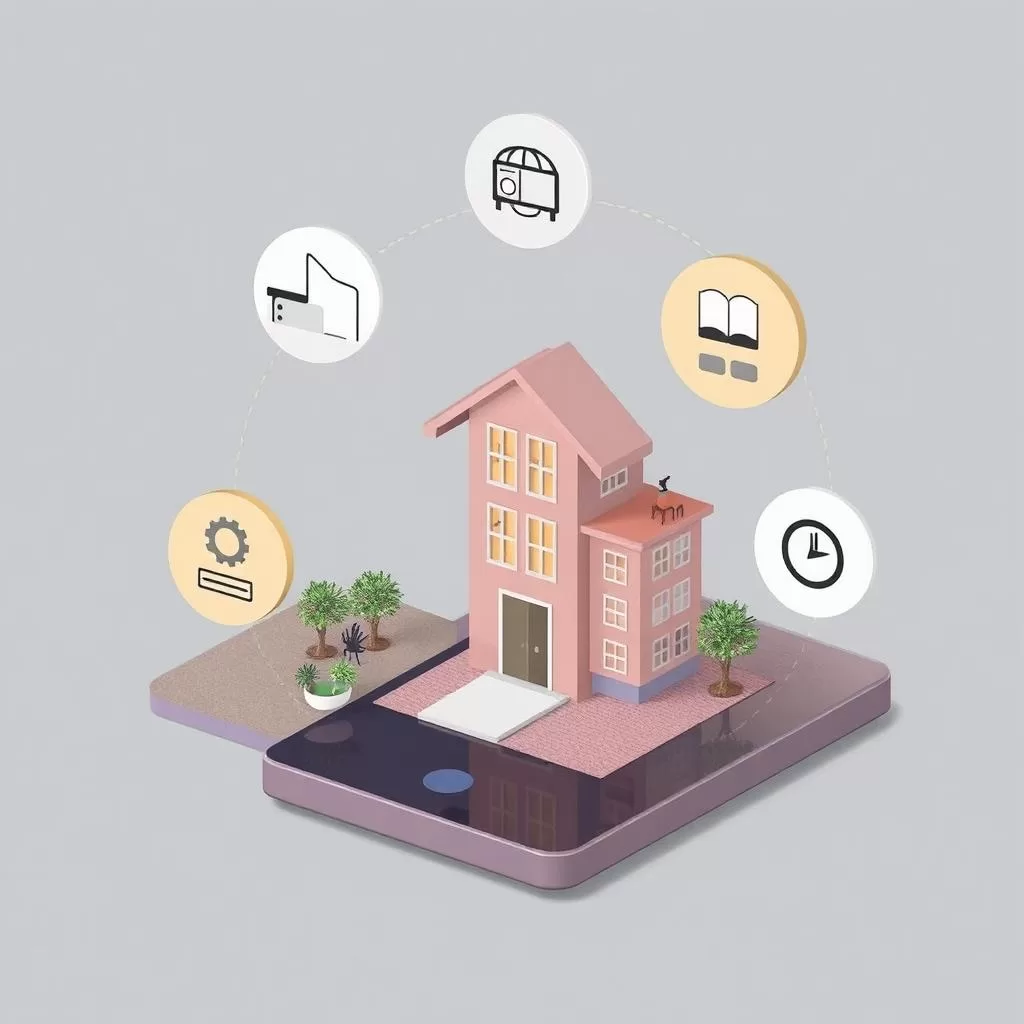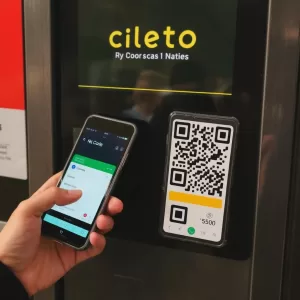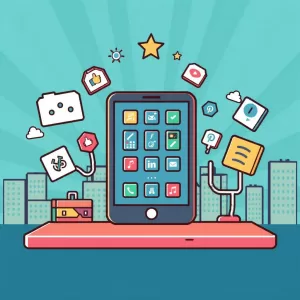How ICT is Transforming Travel and Leisure 🌍🚀
Introduction: The Digital Revolution in Travel
Technology has completely changed the way we travel. For instance, from booking flights online to using AI-powered chatbots for customer support, Information and Communication Technology (ICT) has dramatically revolutionized the travel and leisure industry. Moreover, the advent of new technologies has enhanced not only the convenience of travel but also the overall customer experience. In this article, we will take a deeper look at how ICT is transforming travel and leisure. To begin with, we will highlight some of the key points on this topic. As a result, you will gain a clearer understanding of the significant impact ICT has had on the way we travel.
- Do you want a seamless travel experience?
- Are you looking for the latest travel tech trends?
- Curious about how businesses in tourism are leveraging ICT?
In this article, we’ll explore:
- How ICT is enhancing travel experiences
- The role of AI, IoT, and Big Data in tourism
- Future trends in travel technology
- How businesses can leverage ICT to attract more travelers
Let’s dive in! ✈️🌍
1️⃣ The Role of ICT in the Travel and Leisure Industry 🏨
🔹 Online Booking & Reservations 📅
Gone are the days of waiting in long queues to book flights, hotels, or tours. Instead, today, travelers can:
- Easily book flights, hotels, and car rentals instantly online.
- Additionally, compare prices across multiple platforms using AI-powered travel aggregators.
- Moreover, get instant e-tickets and mobile check-ins for a more hassle-free travel experience.
💡 For example, travel platforms like Expedia, Booking.com, and Airbnb leverage AI to recommend the best deals based on user preferences. In fact, these are perfect examples of how ICT is dramatically transforming travel and leisure.
🔹 Smart Airports & Contactless Travel ✈️
- Self-check-in kiosks eliminate the need for manual processes.
- Biometric authentication (face & fingerprint scanning) speeds up security checks.
- AI-powered baggage handling reduces lost luggage cases.
💡 Example: Airports like Dubai International and Singapore Changi use AI-driven facial recognition for faster immigration clearance. That is a perfect example of how ICT is transforming travel and leisure.
2️⃣ AI & Big Data: Personalizing Travel and Leisure Experiences 🤖
🔹 AI Chatbots for Customer Support 💬
- Travelers can get instant support 24/7 from AI-powered chatbots, ensuring they have access to assistance anytime, regardless of time zone or location. These chatbots can quickly address common inquiries, providing seamless customer service.
- In addition, chatbots assist with flight changes, hotel reservations, and travel recommendations by processing requests efficiently. They not only help travelers manage their bookings but also suggest personalized activities, ensuring a more tailored experience. Furthermore, they can offer alternative options in real-time, which helps travelers stay flexible and informed during their journeys.
- Moreover, language translation chatbots make it easier for travelers to communicate worldwide by breaking down language barriers. These chatbots provide instant translation services, allowing travelers to engage with locals, ask for directions, or navigate foreign environments with ease. As a result, travelers feel more confident and connected, enhancing their overall travel experience.
💡 Example: Airlines like KLM and Emirates use AI chatbots to assist passengers with booking and check-in.
🔹 Big Data in Travel & Tourism 📊
- Travel companies analyze customer behavior to offer personalized deals by tracking preferences, past trips, and booking patterns. This allows them to target travelers with tailored promotions and discounts, enhancing the overall customer experience.
- AI-powered pricing models adjust rates based on demand by analyzing real-time data. This dynamic pricing ensures that prices are reflective of market conditions, optimizing revenue for companies while offering competitive rates to consumers.
- Airlines use Big Data to optimize flight routes and reduce fuel costs. By analyzing historical flight data, weather patterns, and other variables, airlines can plan more efficient routes, saving time, reducing fuel consumption, and ultimately lowering operational costs.
💡 Example: Google Travel uses AI to predict flight delays and suggest alternative routes.
3️⃣ The Internet of Things (IoT) & Smart Travel 🌐
IoT is making travel smarter and more convenient than ever before.
🔹 Smart Hotels & IoT-Powered Rooms 🏨
- To begin with, voice-controlled room service and smart lighting are enhancing the in-room experience for travelers. By simply using voice commands, guests can order food, adjust lighting, or even control entertainment, creating a more convenient and personalized stay.
- Additionally, automated temperature and air conditioning adjustments are ensuring that hotel rooms are always at the perfect comfort level. This seamless integration of technology allows guests to enjoy a consistently pleasant environment without the need for manual controls.
- Moreover, IoT-enabled keyless entry allows guests to use their phones to unlock hotel rooms, eliminating the need for traditional keycards. This feature not only enhances convenience but also improves security and reduces contact, offering a more modern and efficient hotel experience.
💡 Example: Hilton Hotels use smart rooms controlled via mobile apps to enhance guest comfort.
🔹 IoT in Luggage & Baggage Tracking : A key way in which Travel and Leisure is transformed by ICT🎒
- First of all, smart luggage with GPS tracking helps prevent loss or theft by allowing travelers to track their bags in real-time. This technology gives peace of mind, knowing that their belongings are easily traceable throughout their journey.
- In addition, airlines now provide real-time baggage tracking updates, ensuring that travelers are always informed about the status of their luggage. This reduces anxiety and improves the overall travel experience, especially when flights involve multiple connections.
- Furthermore, RFID tags are revolutionizing luggage handling by allowing for faster and more accurate identification. This technology accelerates the process of luggage check-in, transfer, and retrieval, making air travel smoother and more efficient.
💡 Example: AirTag and Tile Trackers help travelers locate lost baggage instantly.
4️⃣ The Rise of Virtual & Augmented Reality in Travel 🕶️
🔹 Virtual Reality (VR) for Travel Planning 🎮 A key transformation of the Leisure and Travel industry by ICT
- Travelers can explore hotel rooms, tourist attractions, and flights in 3D before booking.
- VR city tours allow users to experience destinations before making a trip.
- Travel agencies use VR to promote vacation packages.
💡 Example: Marriott Hotels offers VR travel experiences, letting guests “visit” locations before booking.
🔹 Augmented Reality (AR) for Navigation 📍
- Additionally, AR-powered smartphone apps translate foreign street signs instantly, making it easier for travelers to navigate unfamiliar cities. This technology eliminates language barriers, enabling tourists to explore more confidently without relying on paper maps or translation apps.
- Furthermore, AR helps tourists find attractions, restaurants, and hotels nearby with just a quick glance at their phone screens. By overlaying information in real-time, AR enhances the convenience and efficiency of sightseeing, allowing travelers to make the most of their time in a new destination.
- In addition, museums and historical sites use AR for interactive experiences, engaging visitors in a deeper understanding of exhibits. With AR, visitors can access detailed information, view 3D reconstructions, and even experience historical events in immersive ways, enriching their cultural and educational journey.
💡 Example: The Google Lens app translates foreign text in real time using AR technology.
5️⃣ Mobile Payment & Blockchain in Travel 💳
🔹 Contactless Payments for Seamless Transactions
- Mobile wallets (Google Pay, Apple Pay) make cashless travel easier.
- Travelers can book tickets, pay for hotels, and order food with one tap.
- Cryptocurrency payments are gaining popularity in tourism.
💡 Example: Some hotels and airlines now accept Bitcoin and other cryptocurrencies as payment.
🔹 Blockchain for Secure & Hassle-Free Travel: Another way how ICT is transforming Travel and Leisure
- Decentralized identity verification speeds up airport security checks.
- Smart contracts automate hotel bookings and flight reservations.
- Reduces fraud in online travel transactions.
💡 Example: Winding Tree is a blockchain-based travel platform that eliminates middlemen in booking flights and hotels.
6️⃣ Future Trends: What’s Next in Travel Tech? 🚀
🔹 Hyperloop & Smart Transportation 🚄
- The Hyperloop could reduce travel time between cities to minutes.
- Self-driving taxis & AI-based ride-sharing are becoming mainstream.
- Electric & hydrogen-powered flights will make air travel more sustainable.
💡 Example: Elon Musk’s Hyperloop project aims to revolutionize high-speed travel.
🔹 AI-Powered Travel Assistants 🧳
- AI will act as personal travel planners, booking flights, hotels, and activities.
- Voice assistants like Alexa & Google Assistant will recommend travel itineraries.
- AI will help predict travel trends & demand for better pricing.
💡 Example: TripIt & Hopper use AI to suggest the best time to book flights.
Conclusion on how ICT is transforming Travel and Leisure 🌍
Technology is making travel faster, safer, and more convenient than ever. Whether it’s AI-powered chatbots, VR experiences, blockchain security, or smart IoT hotels, ICT is transforming the way we explore the world.
💡 How ICT is Transforming Travel and Leisure: Key Takeaways:
- Online booking, AI, and IoT are streamlining the travel experience by making it more efficient and user-friendly. For instance, with just a few clicks, travelers can book their entire trip, from flights to accommodations, in minutes.
- Big Data and AI are personalizing travel recommendations by analyzing past preferences and behaviors. This allows platforms to suggest tailored travel options, making the decision-making process faster and easier.
- Smart hotels, AR navigation, and blockchain are enhancing security and convenience. Smart hotels offer seamless check-ins and personalized experiences, while AR navigation helps travelers find their way around unfamiliar places. Blockchain ensures secure and transparent transactions, especially in areas like hotel bookings and payment processing.
- Emerging technologies like Hyperloop and self-driving cars are set to redefine mobility. With their potential for faster, safer, and more eco-friendly transportation, these innovations will revolutionize how people travel in the future.
🌟 Are you ready for the future of travel? Whether you’re a tourist, travel agency, or hotel owner, embracing ICT will ensure you stay ahead in this evolving industry! Learn more about Travel and Leisure here 🚀
What’s Next?
💬 What travel tech trend excites you the most? Share your thoughts in the comments!
Share this content:







2 comments